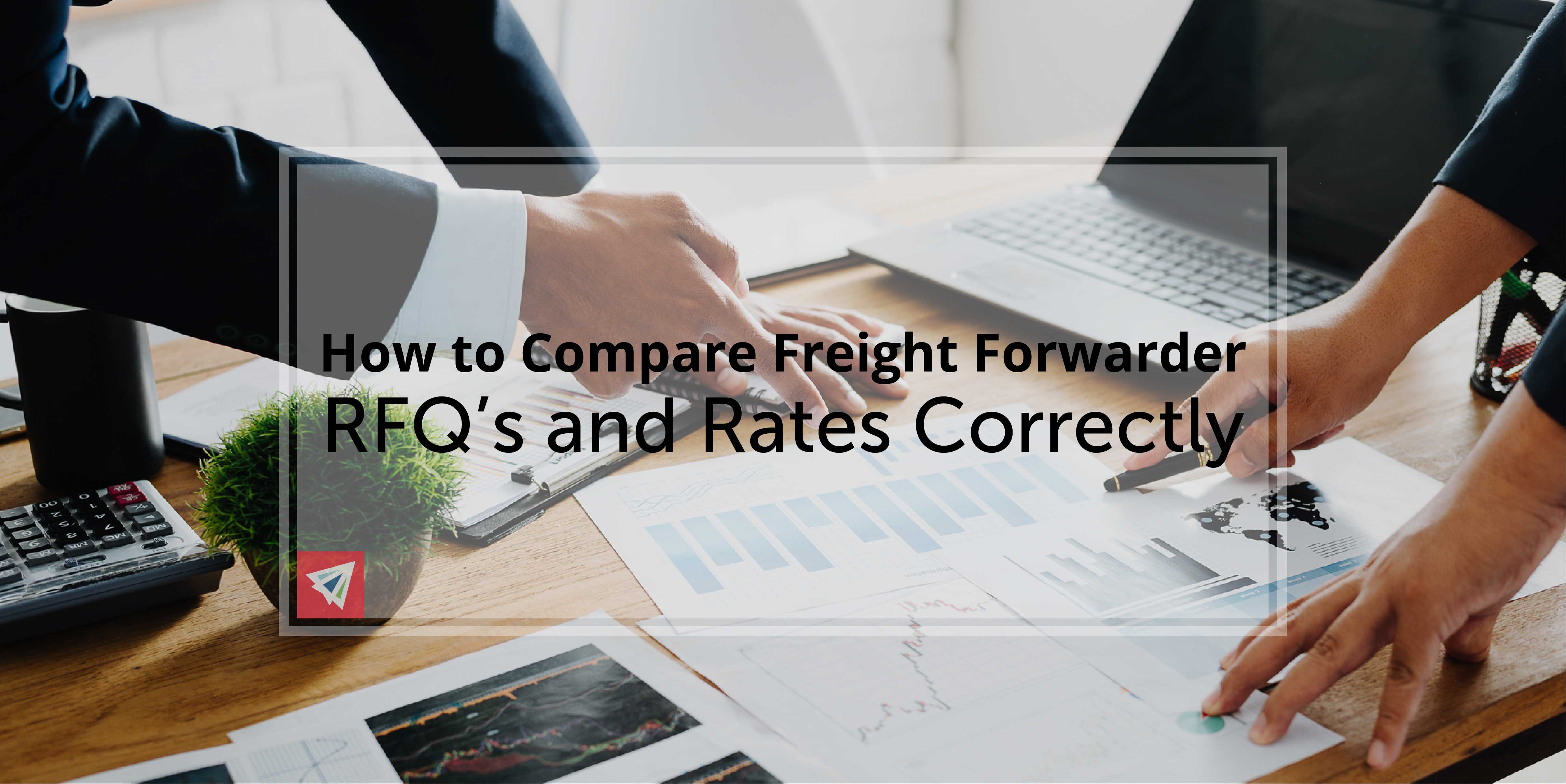As a freight forwarder, we understand that the shipping vendor selection process is a complicated, sometimes tedious, and somewhat unpredictable activity. Your company decides it’s time for a switch, so you round up as many freight forwarders’ emails and phone numbers as you have and issue RFQ’s to those you’re remotely interested in. You compare the rates you receive back and make your decision based on that information.
Seems logical, right?
In actuality, an RFQ contains a very low amount of information regarding whether a switch will actually save you money. Selecting a vendor based on price has a lot more to it than a dollar sign on an RFQ template. Here’s why:
What Does an RFQ Actually Tell You?
Freight Forwarder ‘A’ wrote “$3,000” in their RFQ and Freight Forwarder ‘B’ wrote “$2,000”. So, you select Freight Forwarder ‘B’ because you think they are cheaper. But do you know what “$2,000” actually means?
When comparing RFQ’s, there are a ton of details that are left out of the picture. These include: incoterms, shipping mode, discounts based on shipment frequency, hidden costs, freight forwarder suggestions based on expertise, etc.
An RFQ actually contains a freight forwarder’s inference on what you are looking for – not a true rate based on the incoterm associate with the move, rate discounts based on how often you ship, consolidation best practices for your situation, and other intimate details that will greatly influence the price.
Comparing RFQ’s The Right Way
If you’re comparing RFQ’s to make a new freight forwarder selection, keep in mind that these factors will all influence the true price of a shipment after you book with a vendor, however, they may not appear on an RFQ, since such documents contain minimal information regarding a freight forwarder’s services. RFQ’s might not lead to the best freight forwarder for you, so make sure you receive detailed information about your specific needs.
Incoterms
Incoterms greatly influence price, as they list out who is responsible for the cargo at what stage in the shipping process. DDP vs. EXW incoterms will supply completely different shipment rates, and without knowledge regarding what incoterm you will be using, freight forwarders will return completely different numbers.
What’s worse is you may select a freight forwarder who intentionally quoted the cheapest incoterm. You end up working with them and your cargo projects utilize different incoterms and your new freight forwarder’s rates skyrocket above reasonable costs.
Make sure that you specify the type of incoterm you will utilize in your shipping projects so that you get an accurate read on what your true cost will be.
Shipment Frequency
Depending on how much you ship, your rates could be entirely different. A higher frequency of shipments means that discounts can be applied or new solutions can be devised regarding how to handle the freight.
An RFQ doesn’t usually supply a freight forwarder with this type of information. Make it abundantly clear how much cargo you ship and/or how much you will be awarding to any particular freight forwarder based on RFQ selections. This will help them to assess if they can offer discounts based on volume.
Customer-Specific Solutions
This area is HUGE. All freight forwarders go to the same 13 steamship lines, 50 airlines, and final mile truckers. While people on the outside of the freight forwarder industry don’t understand this, we all get the same rates for the most part.
Where the real cost savings come from is a freight forwarder’s ability to analyze a customer’s current logistics processes and recommend new solutions. This could be in the form of shipping via different methods (intermodal, FCL, LCL, air, ocean, etc.), or through uniting buyer/supplier schedules to arrange for consolidation methods to cut shipping costs.
Issuing & Comparing RFQ’s Correctly
As this point, everyone should understand that an RFQ doesn’t truly give you an accurate measure of the “lowest cost” freight forwarder. Depending on incoterms and shipment frequency, rates can be entirely different. However, even when specifying these, you may be missing on huge cost savings that a freight forwarder could provide through customer-specific solutions such as supplier consolidation, changing shipping modes per recommendations, new routings, etc.
If you feel that you aren’t getting the best service or rates on your current shipping, or you are just curious to learn more about how you can properly compare freight forwarder RFQs, reach out to one of our team members! We have decades of experience in this area, and we are always happy to help whenever we can!

The increase in the number of deliveries helps us to get big discounts through which you can get additional profit by reducing the price.